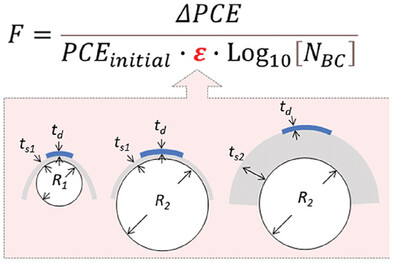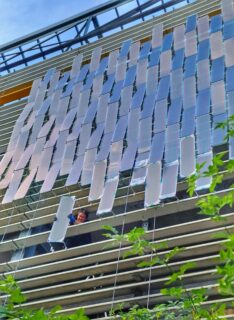Home
NGSE 10
Next Generation Solar Energy (NGSE) is an international conference series organized by the Friedrich-Alexander University Erlangen-Nürnberg (FAU) and the Helmholtz Institute Erlangen-Nürnberg for Renewable Energies (HI ERN) in December.
This year the conference (NGSE 10) will be held from 9th – 10th of December 2025 in Nuremberg, at the EnCN building in Fürtherstraße 250. The conference will include a topic-specific workshop about the Emerging PV initiative and a poster session.
A nominal conference fee of 50€ will be collected from all participants. If you need advice about travel arrangements etc., please contact the organizers directly. The detailed program can be found below.
Schedule:
| Tuesday, December 9th | ||
| 9.15 – 9.30 | Welcome | |
| Session 1 | ||
| 9.30 – 10.00 | Thomas Kirchartz (Forschungszentrum Jülich) | Photodoping, Ideality Factors, and Power-Law Decays in Halide Perovskite Films |
| 10.00 – 10.30 | Alexander Eberst (Forschungszentrum Jülich) | Silicon Heterojunction Solar Cells – From Single Junction to Bottom Cell Applications |
| 10.30- 11.00 | Erkan Aydin (LMU München) | Interfaces at Work: Enhancing Perovskite Solar Cells for Both Terrestrial and Space Environments |
| 11.00-11.30 | Ulrich W. Paetzold (Karlsruhe Institute of Technology) | Augmenting In Situ Monitoring of Perovskite Thin-Film Formation Using Deep Learning |
| 11.30 – 13.00 | Lunch, coffee at EnCN | |
| Session 2 | ||
| 13.00 – 13.30 | Pascal Friederich (Karlsruhe Institute of Technology) | Machine Learning for Design and Autonomous Discovery of Photovoltaic Materials |
| 13.30 – 14.00 | Alessandro Troisi (University of Liverpool) | Digital Discovery for Organic Electronics: from Molecules to Polymers |
| 14.00 – 14.30 | Evelyne Knapp (ZHAW School of Engineering) | ML-Driven Analysis and Modelling of Perovskite Lab Cells and Modules |
| 14.30 – 15.00 | Iacopo Benesperi (University of Newcastle) | Diffuse Light to Structured Information with High Efficiency Indoor Photovoltaics |
| 15.00 – 15.30 | Coffee break | |
| 15.30 – 17.00 | Poster session | |
| 19.00 | Christmas Market | |
| 20.00 | Speakers’ Dinner | |
| Wednesday, December 10th | ||
| Session 3 | ||
| 9.00 – 9.30 | Jenny Nelson (Imperial College) | The Impact of Molecular Properties on Charge Pair Generation in Organic Semiconductors |
| 9.30 – 10.00 | Feng Gao (Linköping University) | Bright organic semiconductors for efficient organic solar cells |
| 10.00 – 10.30 | Harald Ade (North Carolina State University) | Slot-die coating flexible modules on Ag-nanowire -coated substrates |
| 10.30- 11.00 | Frédéric Lacquai (LMU München) | Non-fullerene Acceptor Organic Solar Cells – Photophysics and Device |
| 11.00-11.30 | Jie Min (Wuhan University) | High-speed preparation of OPV active layers and their devices |
| 11.30 – 13.00 | Lunch, coffee at EnCN | |
| Session 4 | ||
| 13.00 – 13.30 | Eva Unger (Helmholtz-Zentrum Berlin) | Recent progress in sheet-to-sheet coated flexible and transparent perovskite modules |
| 13.30 – 14.00 | Jan Anton Koster (University of Groningen) | Perovskite solar cells: what can we learn from numerical modelling |
| 14.00 – 14.30 | Philippe Holzhey (Helmholtz-Zentrum Berlin) | Elucidating the Role of Dimethylammonium for Stable Mixed Halide Perovskite Solar Cells |
| 14.30 – 15.00 | Francesco Vanin (City University of Hongkong) | Organic-Inorganic Halide Perovskite Materials and their Photovoltaic Applications: Chemical Strategies for Enhanced Stability and Performance |
| 15.00 – 15.30 | Coffee break | |
| 15.30 – 17.30 | Emerging PV workshop Luigi Angelo Castriotta (University of Rome Tor Vergata), Christian Sprau (Karlsruhe Institute of Technology), Antonio Riquelme (IFW Dresden) | |
Registration:
closed
Partners:







